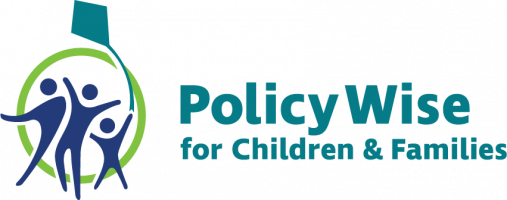
Fostering Change Through Community-Led Collaboration
Youth mental health is a priority in Alberta and across Canada. Fifteen to 25-year olds report the highest rate of mental health concerns of any age group. They are also least likely to seek professional help. Stigma and lack of youth-targeted services are among the reasons. Community-led collaborative service delivery hubs present a way forward. They are a youth-friendly approach to integrating mental health and social services. Alberta Health, in collaboration with other ministries, officially launched the integrated hubs with Canadian Mental Health Association of Alberta in 2021. PolicyWise has been involved as an evaluation and implementation partner since 2017.
We have learned a lot over the past three-plus years along with 11 distinct communities. We dedicate this newsletter to sharing stories, tips, and reflections on the sometimes messy journey of community-led, provincially-supported change. In the end, youth are the catalyst for change and the result is sustainable shifts in how service providers work together to provide early access to care and support.

Lessons Learned:
Embracing the Journey to
Community-Led Collaborative
Service Delivery
Key to success in community-led collaborative service delivery is setting realistic expectations. Here, we provide tips that can help with the process.
We have learned that getting to collaborative service delivery is:

Messy
It’s not straightforward. Expect incremental progress toward integration. It might feel like moving forward and backwards. Plan for setbacks and how to work through these collaboratively. Know your journey will be unique to your community.
Time and resource intensive
This is particularly true in the planning phase. The processes of meaningful engagement and relationship- and trust-building takes time. It cannot be rushed. These are the foundations required for longer-term success. Adjust funding models, expectations, and measures of progress accordingly.


Deeply layered from governance to service delivery
This includes processes for collecting and using shared data. Meaningfully include front line service providers and the target population(s) – in this case, youth – in the collaborative process from the very beginning. Strive for diverse representation. A flexible and open approach is needed, particularly with youth.
Anchored in strong, shared oversight and
supportive structures
A provincial collaborative governance framework establishes clear directions for implementation with baseline policies and procedures. It helps with the development of goals, and leads the needed systems-level change. Sufficient funding for the planning and relationship development phase is needed for success. Organizational buy-in can ensure sustainability though individual turn-over and transitions.

Community Voice:
Fostering Youth Leadership in
Community-Led Collaborative
Service Delivery



Youth Voices members Alex and Charla Savoury, and Julia Turgeon the community coordinator from the Grande Prairie hubs shared their experiences with PolicyWise.
Representatives from the Youth Voices bring their ideas, concerns, and priorities for youth mental health to the Steering Committee meetings. That is where the community organizations make decisions about the integrated hubs. Youth have been there since the beginning. “When we make suggestions, people ask us questions. They don’t cut our ideas down even if they’re not that great yet. They help us to make them better and then the committee acts on them.”
Not expecting trust to happen overnight is one of the take-home messages of our conversation.
Deep Dive:
Setting the Foundation for
Community-Led Youth Mental
Health Hubs: A Tale of Two Communities
Senior Research and Policy Associate, Valerie Salt, reflects on her experiences as the PolicyWise lead on implementation during the pilot phase and ongoing evaluation of the community-led youth mental health hubs project.
Time and relationships are essential to launching community-led integrated service delivery.
These elements are also unpredictable. From my years of experience, I’ve learned that the journey to integrating service delivery is complex. It’s unique to each community and definitely not linear. There is a lot of collaboration and relationship-building that goes on behind the scenes in communities to prepare for integrated service delivery.
It takes significant time to build connections, shared goals, and trust. It cannot be rushed. Unfortunately, this foundational work may not look like progress according to external evaluation measures. This can be a challenge. Expectations tied to funding are that progress will be linear. More funding comes with higher expectations for integrated service delivery to be operational within the funding period. This can set communities up to fail and doesn’t honour the iterative implementation philosophy.


